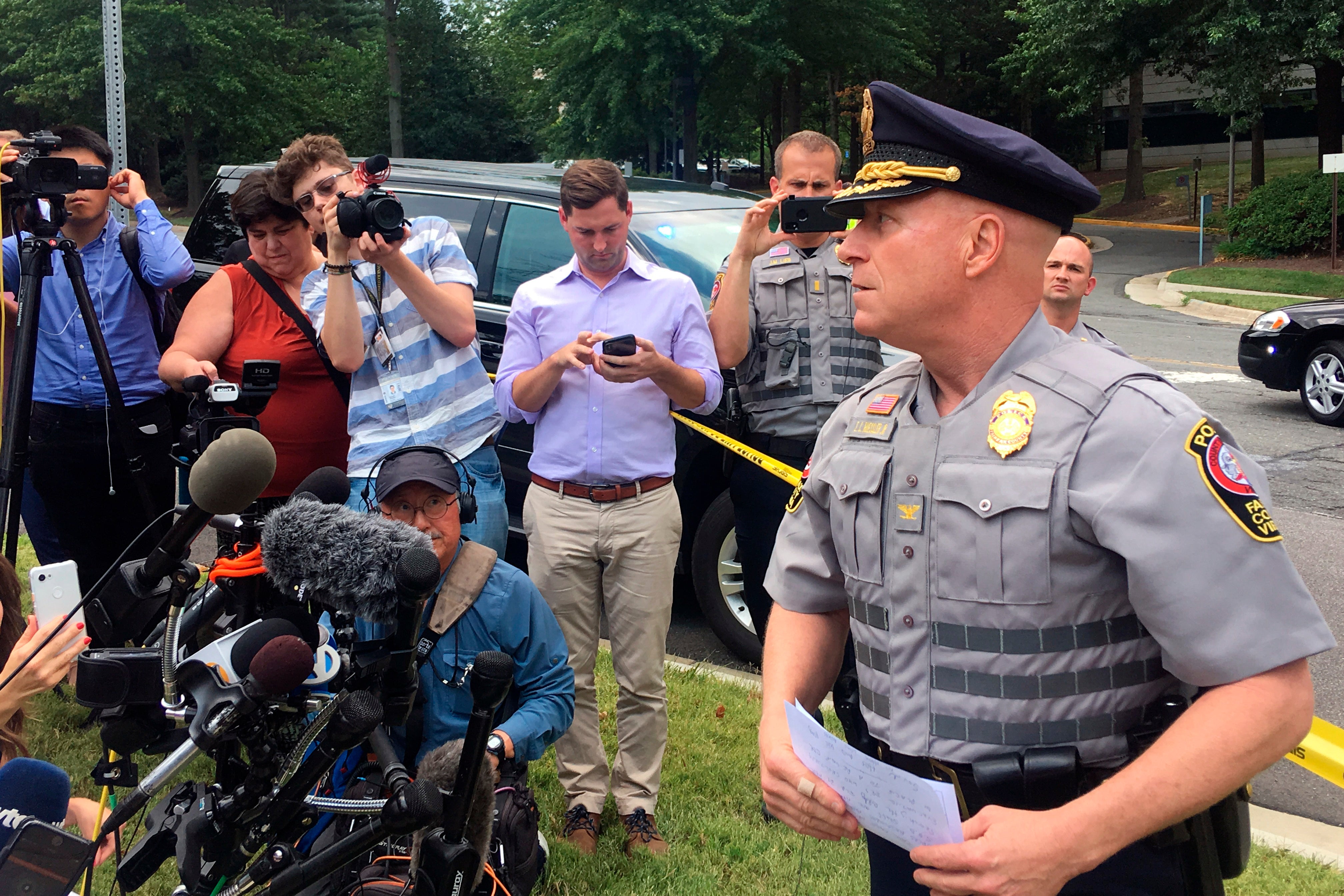Jury hears case alleging 4 cops enabled prostitution ring
A woman who says she was lured from Costa Rica into a Virginia-based sex-trafficking ring says that a former police chief and three other officers were clients of the enterprise and allowed it to operate

Your support helps us to tell the story
From reproductive rights to climate change to Big Tech, The Independent is on the ground when the story is developing. Whether it's investigating the financials of Elon Musk's pro-Trump PAC or producing our latest documentary, 'The A Word', which shines a light on the American women fighting for reproductive rights, we know how important it is to parse out the facts from the messaging.
At such a critical moment in US history, we need reporters on the ground. Your donation allows us to keep sending journalists to speak to both sides of the story.
The Independent is trusted by Americans across the entire political spectrum. And unlike many other quality news outlets, we choose not to lock Americans out of our reporting and analysis with paywalls. We believe quality journalism should be available to everyone, paid for by those who can afford it.
Your support makes all the difference.A woman who says she was lured from Costa Rica into a Virginia-based sex-trafficking ring says a former police chief and three other officers were clients of the enterprise and allowed it to operate.
A federal jury in Alexandria, Virginia, began hearing testimony Tuesday in the civil trial against the four officers, including Edwin Roessler, the former chief in Fairfax County, the state's most populous county.
The woman, identified only as Jane Doe, worked under the supervision of Hazel Sanchez from 2010 until 2015. Sanchez was later convicted of running a commercial sex operation.
Doe says Sanchez forced her into prostitution after luring her from Costa Rica with the promise of work as a nanny and a high-end escort who would go out on dates with wealthy clients but not necessarily be required to have sex with them.
In reality, according to Sanchez's guilty plea, women were required to have sex with as many as 17 men a day, including dangerous and degrading sex acts.
Doe says the officers enabled her trafficking by allowing Sanchez's ring to operate and that police officers are well aware of the connections between trafficking and commercial sex operations.
The lawyer for Roessler and James Baumstark, a former Fairfax County police captain who is now deputy chief in Asheville, North Carolina, said the allegations against her clients are “preposterous.”
“It's made up out of whole cloth," said their lawyer, Kimberly Baucom.
Roessler and Baumstark were not initially defendants in the lawsuit. Baucom said they were added to the case only after a disgruntled Fairfax officer who worked on sex-trafficking cases came forward to Doe's lawyer after the initial lawsuit received publicity.
The initial accusations against Roessler accused him of seeking to thwart that officer's sex-trafficking probe. On Tuesday, for the first time publicly, Doe's lawyer, Victor Glasberg, alleged that Roessler and Baumstark were also both clients of Sanchez's operation.
Glasberg said the defendants “covered up the Sanchez enterprise until (Doe) went to the FBI and it was shut down."
Doe went to the FBI in 2015 after she said she was finally able to escape from Sanchez. Doe said Sanchez controlled her by confiscating her passport and threatening to turn her in to immigration authorities if she didn't work as a prostitute.
The FBI investigation resulted in the criminal case against Sanchez. The FBI also turned over its findings to Fairfax County police, which led to the resignations of the other two defendants, Michael Barbazette of Manassas, a police lieutenant, and Jason Mardocco of Gainesville, a sergeant.
The FBI investigation turned up emails and phone numbers connecting Barbazette and Mardocco to Sanchez. In Tuesday's opening statement, their lawyer, Heather Bardot, said her clients acknowledge hiring Sanchez as a prostitute, but said they had no knowledge of a wider operation run by Sanchez or that they even knew Doe.
All four defendants question Doe's credibility. They say she was never trafficked but was in fact engaged in sex work consensually. They cite the fact that Doe continued to do sex work for a year after she says she escaped from Sanchez.
Glasberg acknowledged that Doe continued to engage in commercial sex work, but described it as “survival sex” — something she did both because she knew no other way to make money independently and because the man she married after leaving Sanchez forced her to do so.
Lawyers on both sides told the jury that the case will hinge on the credibility of Doe, who is expected to testify.
The first witness jurors heard Tuesday was a sex-trafficking expert, Kimberly Mehlman-Orozco, who testified about what distinguishes a trafficking case from consensual sex work.